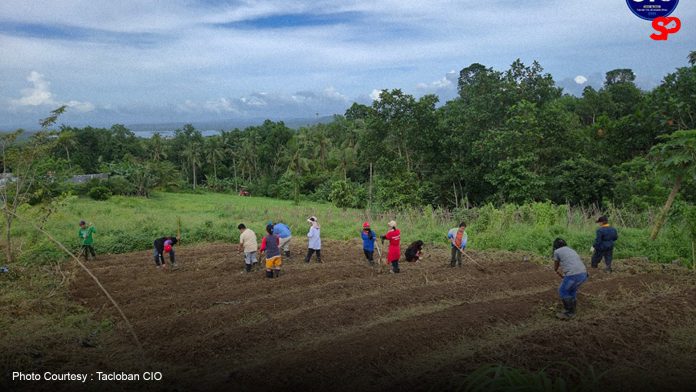By Xander Ledesma
In a coordinated effort to promote sustainable agriculture and support local farmers, the city government of Tacloban has increased its focus on organic farming. As part of this initiative, 18 new scholars from the Technical Education and Skills Development Authority (TESDA) Organic Agriculture NCII program are actively participating in hands-on farming activities.
These scholars, primarily members of the Farmers Association, are currently involved in planting vegetables such as okra and petchay (bok choy) at the Tacloban Agricultural Crops Resources Hub (TACReH). Their training, which takes place from Monday to Thursday each week, is designed to equip them with practical skills and knowledge in sustainable farming techniques. The program is scheduled to conclude on January 30, 2025.
The training emphasizes organic agricultural practices, which are increasingly recognized as viable and eco-friendly alternatives to traditional farming methods. Organic farming reduces the use of chemical pesticides and fertilizers while preserving biodiversity, improving soil health, and ensuring the long-term viability of local agriculture.
Tacloban’s commitment to organic agriculture is not a recent development. Over the past few years, the city has invested in various initiatives to foster sustainable agricultural practices. These efforts are part of a broader regional strategy to improve food security, reduce dependency on imported agricultural products, and enhance the livelihoods of local farmers.
In recent years, the Philippines has witnessed a growing interest in organic farming, driven by environmental concerns and the increasing demand for healthier, chemical-free produce. According to the Department of Agriculture (DA), organic farming has seen significant growth over the last decade, with more farmers and agricultural workers adopting organic practices.
In Tacloban, where agriculture is central to the local economy, the city government collaborates closely with various stakeholders, including the Department of Agriculture and TESDA, to train farmers in modern agricultural techniques that are both sustainable and market-driven.
TESDA’s Organic Agriculture NCII program is part of a national effort to provide skills training and certification for individuals interested in pursuing careers in organic farming. By offering hands-on training and education, TESDA aims to equip farmers with the tools they need to improve productivity and adopt sustainable practices.
The involvement of the Farmers Association in this initiative is particularly significant, as it ensures that local communities benefit directly from the program. Association members, often small-scale farmers, face various challenges, including fluctuating market prices and the impacts of climate change. The skills acquired through this training are expected to help these farmers become more resilient and self-sufficient.
As the training program continues, the Tacloban city government plans to expand its support for organic agriculture. In the coming months, additional initiatives aimed at promoting sustainable farming practices are expected to be launched, including more training opportunities, market access support for organic products, and the creation of new partnerships with private sectors and agricultural organizations.
These ongoing efforts in Tacloban demonstrate the city’s commitment to fostering sustainable agriculture, which can improve local food security, boost farmers’ livelihoods, and promote environmentally friendly farming practices. As more scholars complete the TESDA program, the hope is that they will drive positive change in the region’s agricultural sector, ensuring a healthier and more sustainable future for all.
The Tacloban Agricultural Crops Resources Hub (TACReH) serves as a training and demonstration center for various agricultural techniques, with a special focus on organic farming. Located in the heart of Tacloban, the hub offers hands-on training to aspiring farmers and provides a space for the community to engage in sustainable agricultural practices.

